Another possibility is that the dispute was personal. There’s ample evidence of a long-running Ma-Wang rivalry that goes back at least to the party chairman’s election in 2005, when Ma trounced Wang with over 70 percent of valid votes. As Ma prepared to run for president, Wang declined an invitation to run on the ticket as Ma’s vice president. So there may be some lingering animosity from this history. But this story isn’t very convincing, either. For one, savvy politicians rarely let personal feelings get in the way of political strategy—and those that do tend not to last in politics very long.
I think the answer lies elsewhere. If we think entirely in strategic terms, stripped of emotion and morals, there are two institutional reasons why Ma might have viewed Wang Jin-pyng in his role as speaker of the Legislative Yuan as a major impediment to his agenda, and thus sought to replace him with a more pliable figure.
1. Wang chairs the Cross-Party Negotiation Committee. The Cross-Party Negotiation Committee (in Chinese: 黨團協商, 政黨協商 or 朝野協商) is the body charged with resolving inter-party conflicts over legislative procedure. As this article details, it was created in the late 1990s in an attempt to reduce uncertainty and increase legislative efficiency, which had been disrupted by “wildcat” protests by opposition legislators. It came into force in 1999, the same year that Wang Jin-pyng became LY speaker, so its role is inextricably intertwined with Wang’s stewardship as the head of the legislature.
As far as I have been able to tell, the CPNC is not well understood, even among Taiwanese political scientists who specialize in legislative politics. The basic rules (detailed here) are:
- Every party caucus (which requires a minimum of 3 members) is allowed one representative, typically the party caucus whip.
- The CNPC meets at the discretion of the LY Speaker; in practice this happens whenever there's a boycott or blockade in the legislature, which has happened at least 80 times in this LY.
- Discussions are supposed to be recorded or otherwise made public; this rule is blatantly and routinely violated.
- Any legislative action agreed to by all party representatives in the CNPC will not be opposed by individual members of each caucus, allowing for expedited reviews, votes, or other legislative actions.
At the other extreme, the CPNC could just function as a more formal version of the informal discussions that take place all the time between different parties in the legislature, and give no extra meaningful authority in practice to opposition parties.
The conversations I've had with people at the legislature suggest that the CPNC looks a lot more like the second situation than the first: to the extent negotiations in this body are meaningful, it is because the opposition parties are able to do things outside the CPNC to block majority action on legislation. And if negotiations in the committee actually were on the record, as the statute requires, the party leaders would simply move them out of that committee and somewhere else private. Thus, the CPNC is not really the place where the president's agenda goes to die. If President Ma thought getting rid of Wang would gut the CNPC and streamline legislative action, he had the wrong target in mind.
- 1988.12.06: DPP legislators objecting to the continued presence of permanent unelected "Eternal Legislators" (萬年立委) try to grab the microphone from the speaker, Liu Kuo-tsai (劉闊才), starting a fight. Liu calls in the police and throws the DPP legislators out of the chambers.
- 1989.07.04: As a protest against the unelected legislators, DPP legislator Wu Yung-hsiung (吳勇雄) stands at the presentation podium (發言台) and refuses to budge. Speaker Liu calls security personnel in to have him removed from the chamber.
- 1990.05.29: Hau Pei-tsun, the sitting Minister of Defense and a retired military general, is nominated to be the next premier by President Lee Teng-hui. During the confirmation hearing, the DPP criticizes the nomination, calling Hau the head of a new “military cabinet” (軍人組閣). (Until 1997, premiers had to receive LY confirmation before taking office.) During the confirmation vote, a physical altercation breaks out between KMT and opposition LY members, and Speaker Liang calls in security to restrain the opposition.
- 1990.11.06: DPP members are unhappy that Speaker Liang permits Premier Hau to give perfunctory answers to legislators (“敷衍兩句“). A fight breaks out while Hau's remarks are being read into the official record, and Liang again calls in security to quash the opposition’s protests.
- 1990.12.18: Upset at the KMT caucus's sudden change to the legislative agenda, the DPP caucus starts a group protest, and DPP legislator Wei Yao-kan (魏耀乾) unplugs the microphone while Speaker Liang is attempting to start the session. For the third time in a year, Liang calls in security personnel, who struggle to restrain DPP legislators and restore order.
- 1991.04.12: The best-known incident: DPP legislator and future premier Chang Chun-hsiung (張俊雄) approaches Speaker Liang at the podium, hands him a letter of protest, and then without warning lightly slaps him, telling him that this is a “wake-up call” from the Taiwan people. Furious, Liang orders security into the chamber. DPP legislator Lu Hsiu-yi (盧修一) rushes to defend Chang, ends up injured at the bottom of the scrum with the police, and is sent to the hospital. A few moments of the confrontation can be seen in the video accompanying this news story.
Given these precedents, then, during any of the dozens of times the opposition parties have occupied the podium over the last year, Wang could have used this power to have them removed. And this presumably would have allowed action on everything on President Ma's agenda, including the Cross-Strait Services in Trade Agreement. So in a strictly legal sense, Speaker Wang has not used every weapon in his arsenal to ensure legislative action on executive priorities. He is allowing the opposition to block legislation without consequences. From Ma's perspective, then, a speaker more sympathetic to the president's agenda could use this power to end opposition blockades--thus, in all probability, the attempt to get rid of Wang.
If we view the Speaker's authority over the legislature in its historical context, the picture is not nearly so simple. First, the sergeant-at-arms power has never been used in the democratic era. Taiwan today is a strikingly different place from Taiwan in 1991: most obviously, all legislators are subject to direct elections now. Calling in the police would be the political equivalent of dropping a nuclear bomb on the legislature. The opposition would no doubt go all-out to resist a police action in the legislative chambers and to play up the violence and drama, and the image of security forces dragging out opposition legislators would attract not only blanket domestic news coverage but probably also a great deal of opprobrium from abroad as well.
It's also just not Wang's style--he's been able to survive as speaker in large part because he's viewed as a fair-minded and consensus-oriented leader, one of the few people who is well-connected and respected among both political camps. And even if Wang were in theory willing to entertain the idea, the fate of the last speaker to call in the police should give him pause: Liang Su-jung lasted barely over a year in the position before he had to resign.
It's conceivable that, had Ma succeeded last September in expelling Wang from the party and creating a vacancy for the speaker's office, a Ma ally could have been installed in the position--someone like the KMT caucus whip Lin Hung-chih (林洪池). But he would face the same basic dilemma: he doesn't have the internal party unity to win a showdown with the DPP, and using the police to remove opposition legislators would impose a huge political cost. I'm skeptical that the KMT caucus would agree to bear that cost, or that they would support a nominee for speaker who was willing to impose it.
Thus, removing Wang Jin-pyng from the Speaker's position was not likely to change the underlying situation much. Even if it had succeeded, I think Ma's attempt to purge Wang was a serious strategic miscalculation, and indicates a fundamental misunderstanding of how the legislature works.
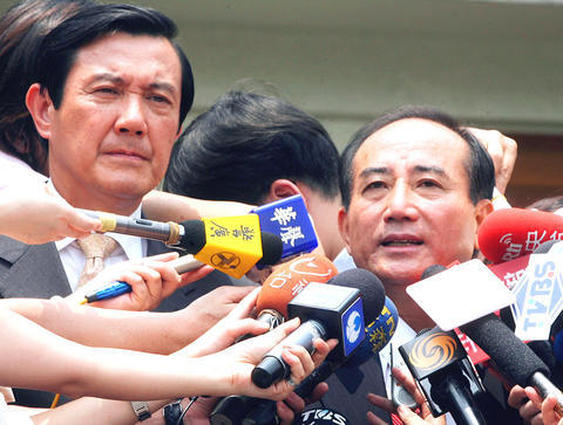
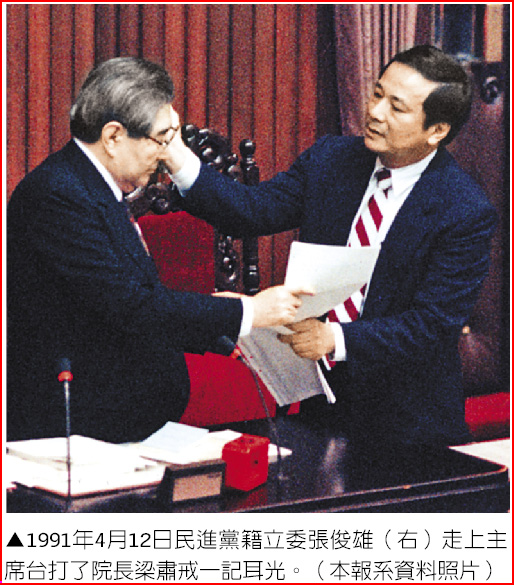
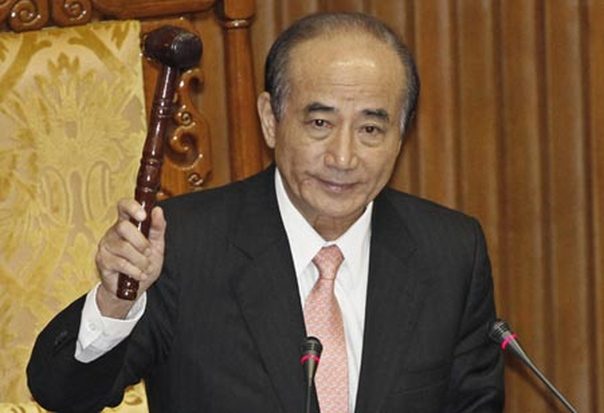
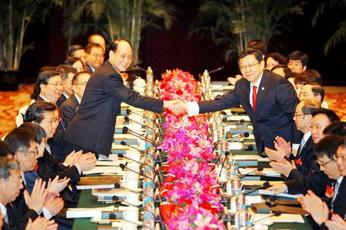
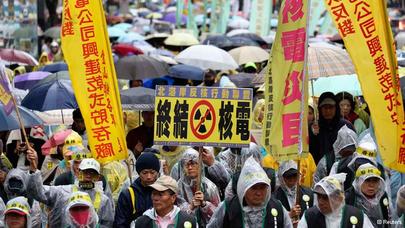
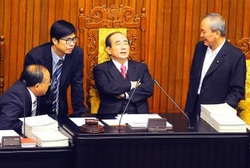
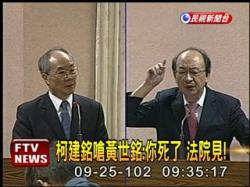
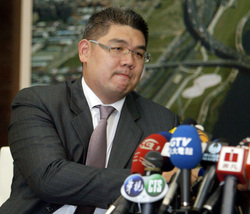
 RSS Feed
RSS Feed
